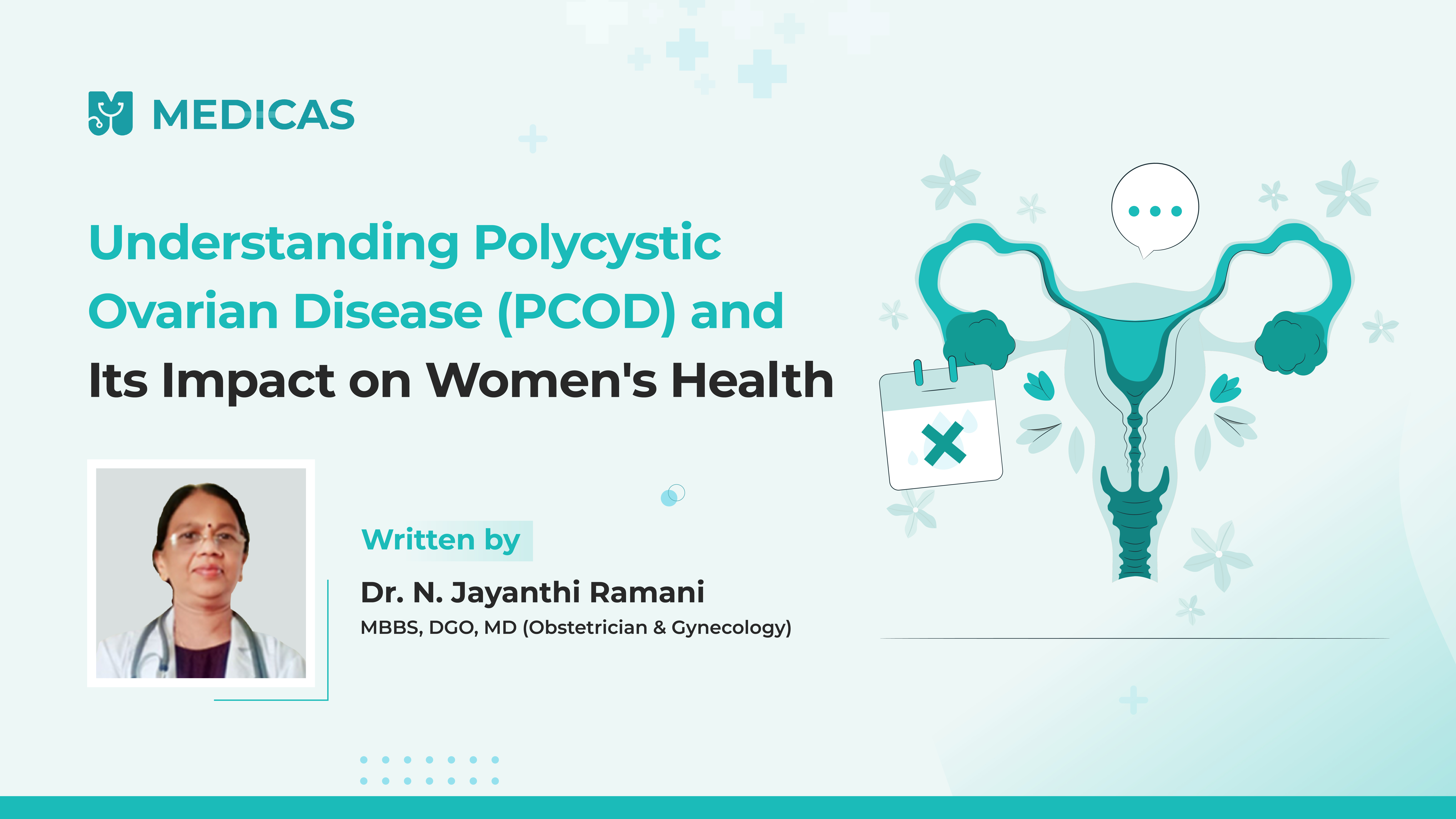FAQs
- What is the difference between PCOD and PCOS?
PCOD (Polycystic Ovarian Disease) involves hormonal imbalance where ovaries produce immature eggs that develop into cysts. PCOS (Polycystic Ovary Syndrome) is a more complex endocrine disorder that affects multiple body systems and often includes metabolic issues like insulin resistance. PCOS is generally more severe than PCOD and can have long-term health implications. - How is PCOD diagnosed in women?
PCOD is diagnosed through a combination of clinical symptoms (like irregular periods, acne, and weight gain), pelvic ultrasound to detect multiple cysts, and hormonal blood tests to assess levels of androgens, insulin, and reproductive hormones. A healthcare provider may also rule out other conditions before confirming the diagnosis. - What are the best PCOD treatment options available?
Treatment includes lifestyle modifications such as a balanced diet, regular exercise, and stress management. Medical options include hormonal birth control pills, insulin-sensitizing drugs like Metformin, ovulation-inducing medications for fertility, and supplements such as inositol or vitamin D. Treatment is tailored based on individual symptoms and health goals. - Is PCOD curable permanently with lifestyle changes?
PCOD is not permanently curable but can be effectively managed. With consistent lifestyle changes—like weight management, a PCOD-friendly diet, regular physical activity, and stress reduction—many women experience restored hormonal balance and symptom reversal over time. - Can PCOD affect pregnancy and fertility in women?
Yes, PCOD can disrupt ovulation and make it harder to conceive. However, many women with PCOD do get pregnant naturally or with the help of fertility treatments. Early intervention, cycle tracking, and support from a gynecologist can significantly improve chances of conception. - Are there any effective PCOD Ayurvedic treatments?
Ayurveda offers natural remedies like Ashwagandha, Shatavari, Triphala, and dietary changes to balance hormones and improve reproductive health. Detox therapies like Panchakarma may also be recommended. While these treatments may offer support, they should be pursued under the guidance of a certified Ayurvedic practitioner and complemented with modern medical care.
Related Blogs
Disclaimer
Medical Advice: The information provided in this blog post is for educational purposes only and should not be considered as a substitute for professional medical advice, diagnosis, or treatment. Always consult with a qualified healthcare professional for personalized guidance regarding your specific medical condition.
Accuracy of Information: While we strive to provide accurate and up-to-date information, the field of medicine and viral fevers is constantly evolving. The content in this blog post may not reflect the most current research or medical guidelines. Therefore, it is advisable to cross-check any information provided with reliable sources or consult a healthcare professional.
Individual Variations: The symptoms, causes, treatment options, and preventive measures discussed in this blog post are general in nature and may not apply to everyone. It is important to remember that each individual’s situation is unique, and personalized medical advice should be sought when making healthcare decisions.
External Links: This blog post may contain links to external websites or resources for additional information. However, we do not endorse or have control over the content of these third-party websites. Accessing these links is done at your own risk, and we are not responsible for any consequences or damages that may arise from visiting these external sources.
Results May Vary: The effectiveness of treatment options or preventive measures mentioned in this blog post may vary from person to person. What works for one individual may not work the same way for another. It is essential to consult with a healthcare professional for personalized advice tailored to your specific needs.



